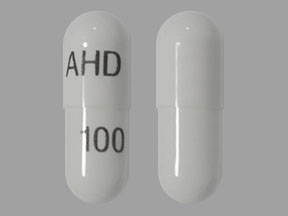
Neurontin Coupons & Savings Card – Discount Prices from $4.02
Brand for: Gabapentin
My prescription
Edit
100MG, Gabapentin (60 Capsules)
Select pharmacy

CVS
$19.56
COUPON PRICE
Walmart
$4.02
COUPON PRICE
Walgreens
$10.27
COUPON PRICE
Albertsons
$13.40
COUPON PRICENeurontin savings card
Show this card to your pharmacist
Walmart
$4.02
BIN
ID
PCN
GRP
019876
LH68FD8F38
CHIPPO
LHX
Powered by
Related anti-epileptics prescriptions
More prescriptions for postherpetic neuralgia
Related anti-epileptics prescriptions
More prescriptions for postherpetic neuralgia
Price history for Neurontin (brand) & Gabapentin (generic)
60 Capsules, 100MG
Average retail price for Neurontin
Average retail price for Gabapentin
Average SaveHealth price for Gabapentin
Our price history data is based on aggregated prescription data collected from participating pharmacies in America. Our prescription data updates daily to reflect the latest price changes. If you notice a missing data point, it means there wasn't sufficient data available to generate a monetary value for that date.
Over the last 12 months, the average discount price of Neurontin is $15.56 using the SaveHealth savings card. That's an average savings of 97.61% on Neurontin with our discount card.
*Retail prices are based on pharmacy claims data, and may not be accurate when we don't have enough claims.
Neurontin (Gabapentin) dosage forms
Dosage Quantity Price from Per unit 100MG 60 Capsules $4.02 $0.07 100MG 30 Capsules $3.26 $0.11 100MG 50 Capsules $3.76 $0.07 100MG 90 Capsules $11.27 $0.13 100MG 120 Capsules $12.03 $0.10 100MG 180 Capsules $18.85 $0.10 300MG 10 Capsules $2.94 $0.29 300MG 30 Capsules $3.83 $0.13 300MG 60 Capsules $5.17 $0.09 300MG 90 Capsules $13.00 $0.14
| Dosage | Quantity | Price from | Per unit |
|---|---|---|---|
| 100MG | 60 Capsules | $4.02 | $0.07 |
| 100MG | 30 Capsules | $3.26 | $0.11 |
| 100MG | 50 Capsules | $3.76 | $0.07 |
| 100MG | 90 Capsules | $11.27 | $0.13 |
| 100MG | 120 Capsules | $12.03 | $0.10 |
| 100MG | 180 Capsules | $18.85 | $0.10 |
| 300MG | 10 Capsules | $2.94 | $0.29 |
| 300MG | 30 Capsules | $3.83 | $0.13 |
| 300MG | 60 Capsules | $5.17 | $0.09 |
| 300MG | 90 Capsules | $13.00 | $0.14 |
| 300MG | 120 Capsules | $14.33 | $0.12 |
| 300MG | 270 Capsules | $24.22 | $0.09 |
| 400MG | 30 Capsules | $4.10 | $0.14 |
| 400MG | 60 Capsules | $5.70 | $0.10 |
| 400MG | 90 Capsules | $7.31 | $0.08 |
| 400MG | 120 Capsules | $8.91 | $0.07 |
| 400MG | 180 Capsules | $18.61 | $0.10 |
| 400MG | 270 Capsules | $26.35 | $0.10 |
What is Neurontin mainly used for?
Neurontin, also known as gabapentin, is primarily used to treat nerve pain and as an adjunctive therapy for partial seizures in epilepsy.
Are Neurontin and Xanax the same?
Neurontin and Xanax are not the same. Neurontin, also known as gabapentin, is primarily used to treat nerve pain and seizures. Xanax, or alprazolam, is a medication used to treat anxiety and panic disorders. They belong to different drug classes and have different uses and mechanisms of action.
What are the bad side effects of Neurontin?
Neurontin, also known as gabapentin, can cause several side effects. Common side effects include dizziness, fatigue, drowsiness, and peripheral edema (swelling of the extremities). Some individuals may experience coordination problems, tremors, or blurred vision. More serious side effects can include mood changes, depression, or suicidal thoughts. It's important for individuals to contact their healthcare provider if they experience any severe or concerning symptoms.
Is gabapentin a muscle relaxer or pain pill?
Gabapentin is neither a muscle relaxer nor a traditional pain pill. It is an anticonvulsant medication that is often used to treat nerve pain and certain types of seizures.
Does gabapentin work as a muscle relaxer?
Gabapentin is not classified as a muscle relaxer. It is primarily used to treat nerve pain and seizures. While it may have some off-label uses, it is not typically prescribed for muscle relaxation.
